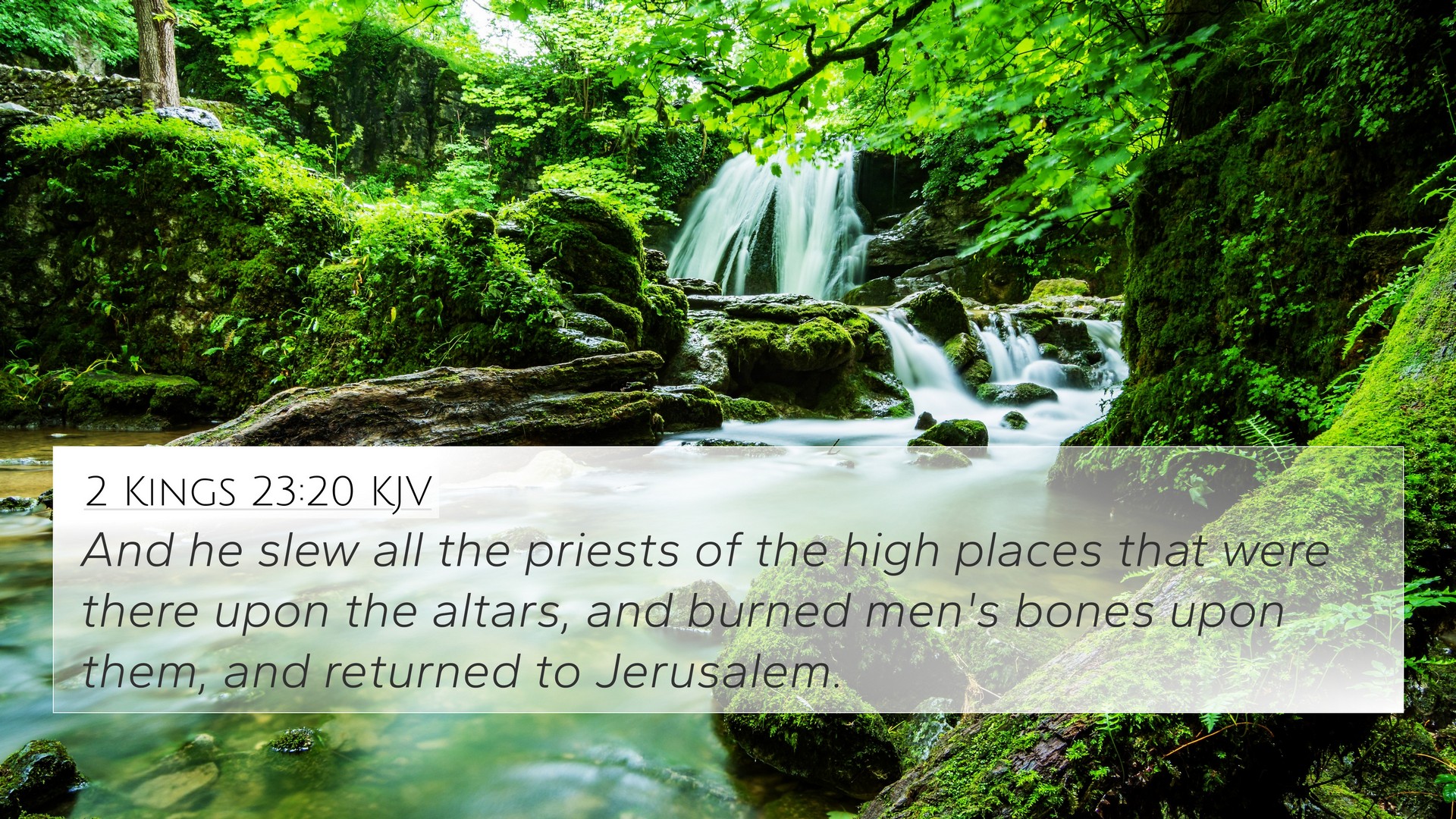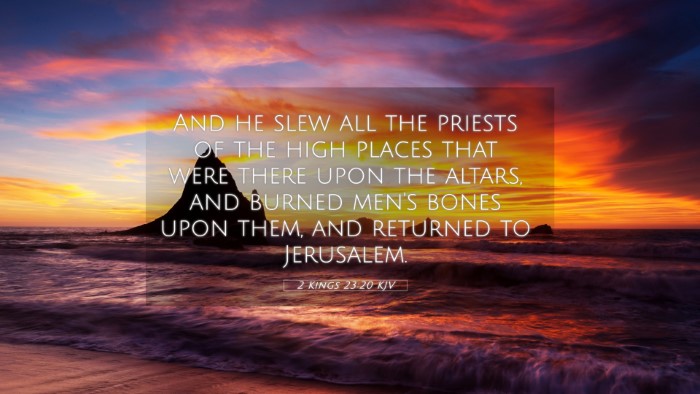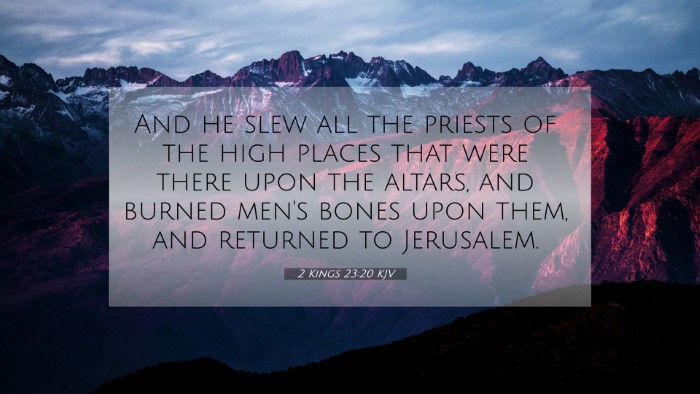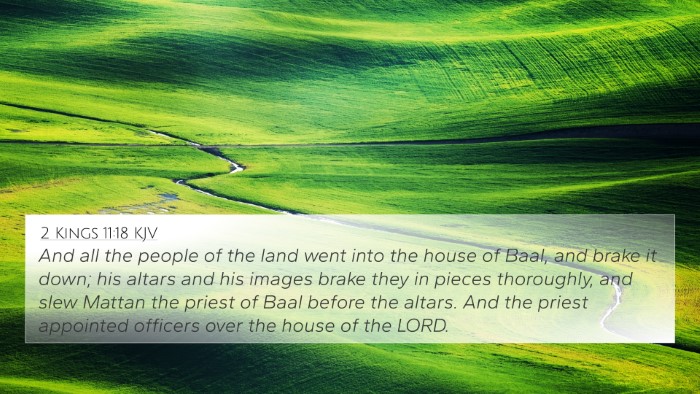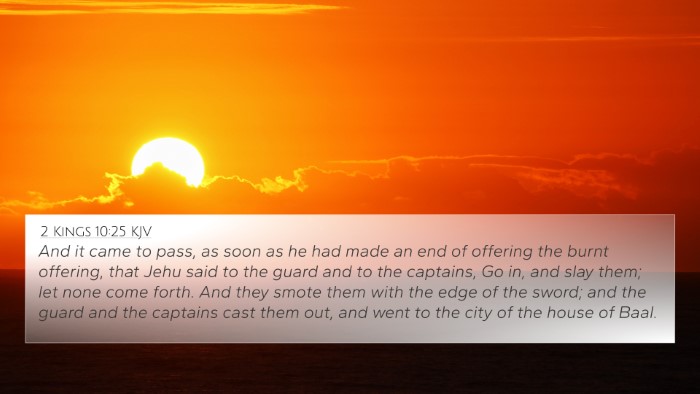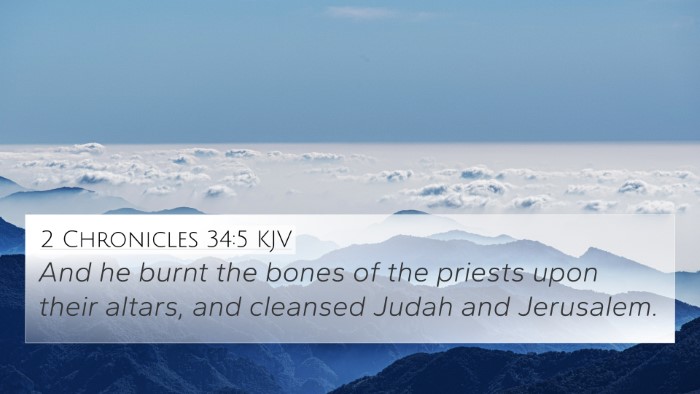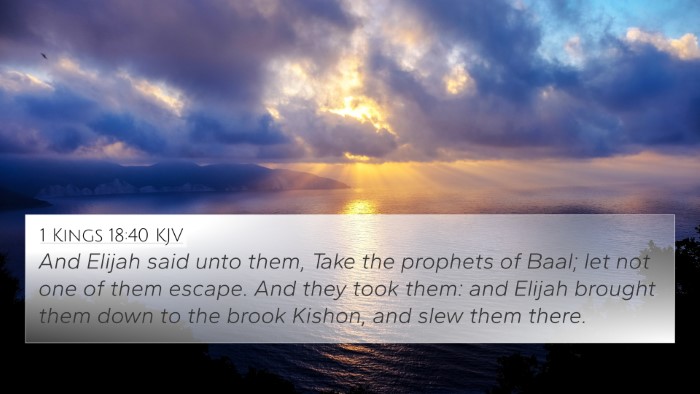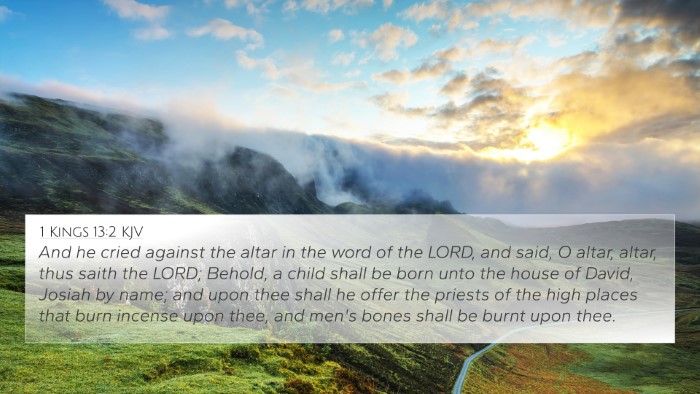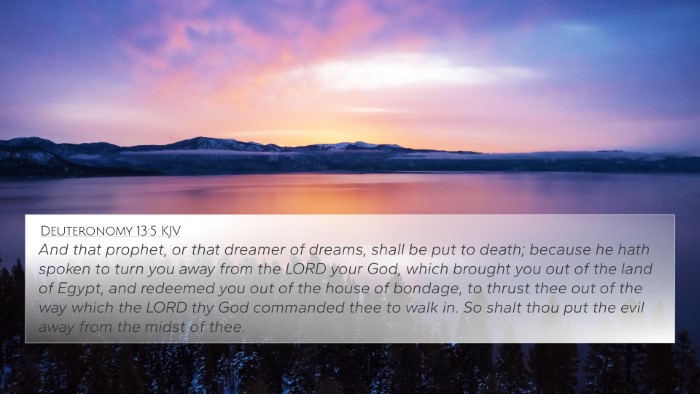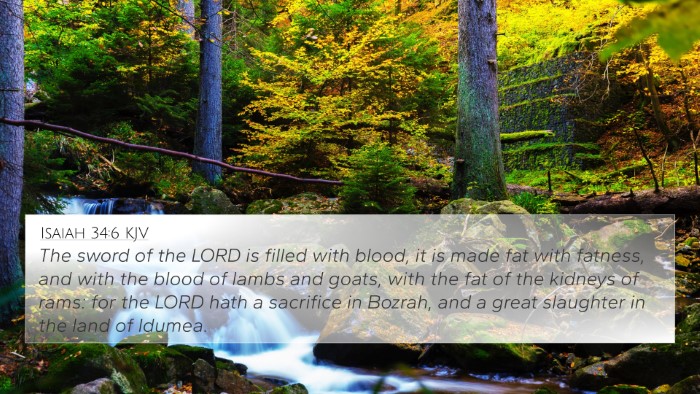Understanding 2 Kings 23:20
2 Kings 23:20 states: "And he slew all the priests of the high places that were there upon the altars, and burned men’s bones upon them, and returned to Jerusalem." This verse highlights a significant moment in the religious reforms instituted by King Josiah, denoting a zealous attempt to restore true worship in Israel by eradicating idolatry.
Contextual Background
To fully grasp the implications of this verse, it is essential to understand the historical and theological context in which it resides. King Josiah, ascending the throne as a boy, later discovered the Book of the Law (likely Deuteronomy) during temple repairs. This discovery ignited a religious revival, wherein he sought to undo the idolatrous practices that had contaminated Israel’s worship.
Thematic Analysis
This verse serves as a poignant illustration of the themes of purity and reformation present throughout the scriptures. Josiah's actions reflect the Biblical mandate to eliminate practices contrary to God's commandments. This aligns with the call for holiness as depicted in Leviticus 20:7-8 and the reiterated warnings against idolatry found in Ezekiel 14:6.
Commentary Insights
- Matthew Henry: Emphasizes that Josiah's rigorous actions were a fulfillment of prophetical admonition. He notes the importance of removing false worship as an essential part of returning to God.
- Albert Barnes: Discusses how Josiah’s slaying of the priests demonstrates the intense opposition to false worship and emphasizes his commitment to Yahweh alone.
- Adam Clarke: Highlights the severity of Josiah's reforms and the underlying significance of 'burning men's bones,' which denotes a complete and utter rejection of pagan practices.
Cross-References and Connections
The actions described in 2 Kings 23:20 resonate with various other passages in the Bible, establishing a inter-Biblical dialogue regarding idolatry and purity in worship. Below are significant cross-references that connect thematically and contextually:
- 2 Chronicles 34:4 - Also describes Josiah's reforms and destruction of the high places.
- Deuteronomy 12:2 - Entrusts the Israelites with the duty of destroying places of idol worship.
- 2 Kings 23:5 - Details the abolishment of idolatrous priests.
- Exodus 22:20 - The law against idol worship, reinforcing the foundational principles used in the reforms.
- 1 Kings 13:2 - A prophecy declaring the destruction of false altars, foreshadowing Josiah’s actions.
- Hosea 10:2 - Highlights the unfaithfulness of Israel, aligning with the context of Josiah’s reforms.
- Isaiah 1:17 - Calls for justice and care for the oppressed, underscoring the broader imperative to worship God authentically.
- Jeremiah 7:30-31 - Warns against the sins of Judah, which Josiah's reforms sought to address.
- Romans 12:1 - Reflects on the call to present our bodies as living sacrifices, which relates to pure worship.
- Matthew 3:10 - John the Baptist’s warning about the ax already being laid at the root of trees, calling for genuine repentance akin to what Josiah achieved.
Conclusion
In conclusion, 2 Kings 23:20 is a powerful reminder of God's demand for purity and the eradication of false worship. Josiah's drastic reforms are emblematic of a larger Biblical theme concerning the necessity of a heart turned toward God. This verse encourages believers to reflect on their own practices and to pursue a worship that aligns with the truths found throughout Scripture.
Further Study and Resources
For those looking to delve deeper into the themes and connections of Biblical texts, the following resources may be beneficial:
- Tools for Bible cross-referencing
- Bible concordance
- Bible cross-reference guide
- Cross-reference Bible study
- How to use Bible cross-references
- Bible cross-reference system
- Cross-referencing Bible study methods
- Bible reference resources
- Bible chain references
- Comprehensive Bible cross-reference materials
